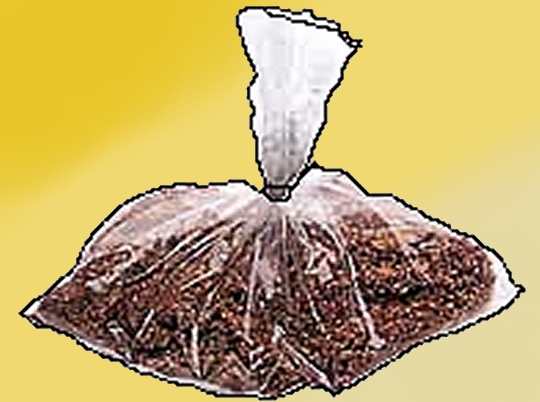The
seeds of many of
native
species of
plants,
deciduous and
evergreen
trees and
shrubs along with some
perennials and
herbs are incapable of
germinating immediately
after they are harvested and will not germinate without a
pre-treatment
known as stratification.
Stratification simulate the
natural conditions that a
seed must endure before
germination. Some seeds are
incomplete and require a further period to complete the
development of
immature parts; some other
have built-in dormancy
mechanisms (like
mechanical
barrier to water or
physiological "block") that
prevent them from germinating (sprouting) until
growing conditions
are favourable. Depending on the
species, seeds will not break
dormancy under too wet
or too dry growing conditions,
imminent winter conditions, or high
temperatures. For seeds
that require a development
period, dry storage will usually suffice. Among other methods of
treatment of seeds, stratification (warm, cold, or variable
stratification) is used to remove
mechanical moisture
barriers and physiological
blocks.
|

Stratification
(Seed bagged) |
The stratification, is an old and simple
practice of stimulating seed to germinate by placing alternate
layers of a moist media and
seed.
The modern method is to thoroughly mix seeds in moist media like
peat moss,
vermiculite,
perlite, composted bark,
sawdust, or potting media
to simulate the natural
conditions it would normally receive from its native
environment. The
mixture is stored in sealed containers such as polyethylene
bags. The bags are simply stored at room temperature to provide
the moist warm treatment. They can be placed in the household
refrigerator if a moist cold
treatment is required.
|
TYPES OF STRATIFICATION:
There are several types of stratification depend on what that
seeds would normally experience in nature. |
| |
• Warm-wet. Seeds that require a warm
moist treatment to induce germination can be stored at a room
temperature, Keep out of the sun!
• Cool-wet. Seeds that require a cold moist treatment.
Can be stored in the vegetable compartment of the refrigerator
for four to twelve weeks.
• Warm-cool-warm-wet. Depending on the species, some need
a combination of warm and cool treatments followed by a warm to
germinate.
• Warm-cool-warm, wet and dry Some other specie need a
combination of warm- cool in moist medium followed by a period
in which the medium and seed are allowed to dry for one to a few
month repeating this cycle for the necessary number of
treatments followed by a warm to germinate.
|
|
Stratification
Instructions: |
| A) Necessary items before
beginning: |
| |
Seeds
Sterile medium (peat
moss, vermiculite,
perlite, or
potting media)
Water
Plastic labels and waterproof
pen
Sterile Plastic Zip Lock freezer
bags or plastic containers with
tight fitting lids. |
| B)
Label |
| |
Label both the containers and plastic stakes
with a waterproof pen. Include the stratification date started
and when they are due to be removed from stratification. |
| C)
Scarification. |
| |
Some seeds have a
mechanical
barrier to water, which is
required for germination. These may require
scarification. |
| D)
Soaking |
| |
Further, some seeds have a
hormonal or
chemical inibition
to germination. These may require
soaking. |
| E) Mixing the stratification
medium. |
| |
Use 10-20 times the volume of medium vs. seed
volume. Your stratification medium should be moist to the touch,
but not soaking wet. Moisture is obviously a key factor in the
stratification process. High moisture levels in the sealed
containers, however, causes
fungus growth that can harm the seed, mixing a
fungicide in the medium
is a good prevention |
| F) Stratify |
| |
Make note on your calendar when you place your
seeds into stratification and when to remove them. Place
the sealed containers into the proper cold or warm
stratification environment.
Seed should not stay in stratification many months past its
recommended stratification time as it will use up its energy
reserves and die. Even at low moisture levels some of the seeds
might germinate in the sealed containers; these seeds will
grow normally, if they are planted carefully |
| f) Remove and Sow |
| |
After the required time period (or after
germination is noticed), remove the seed and sow |
NATURAL WAY:
If you don't want to stratify in the 'fridge, then you can always
use the nature's way and sow in the Autumn planting the seeds
directly into a nursery bed or pot
for germination the following Spring usually satisfies a seed's
requirement for cold stratification. This means you can skip all the
above outlined pre-treatment in your refrigerator as the
over-wintering of the seeds in the earth accomplishes the same
thing. |